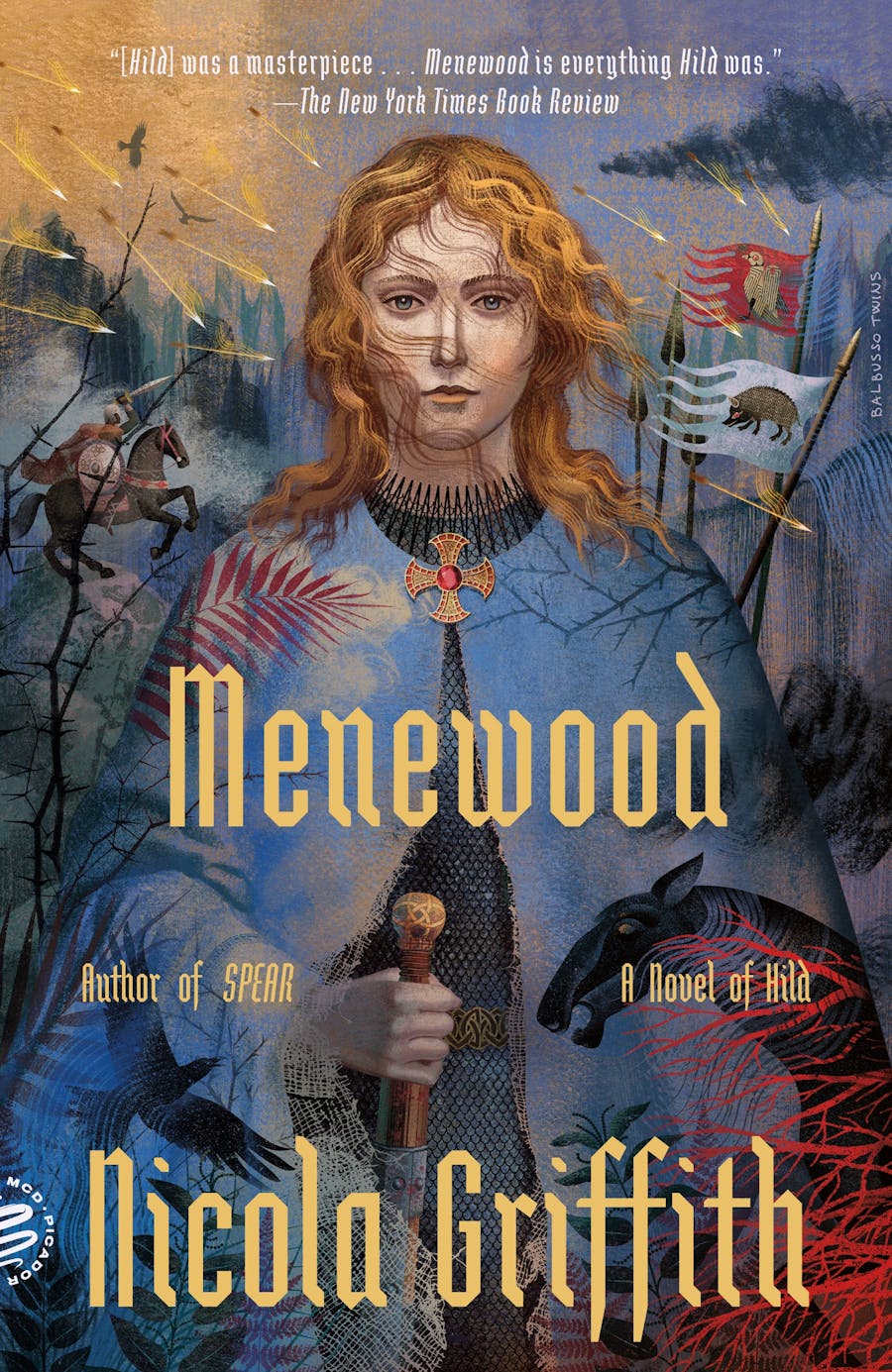 I have been waiting to read Nicola Griffith’s Menewood since I finished Hild not long after it first came out in 2013. I grabbed Menewood as soon as my bookstore got it in this month and I read all 700+ pages (including notes) over about five days despite a long things-to-do list.
I have been waiting to read Nicola Griffith’s Menewood since I finished Hild not long after it first came out in 2013. I grabbed Menewood as soon as my bookstore got it in this month and I read all 700+ pages (including notes) over about five days despite a long things-to-do list.
It was worth the wait. Not only that, reading it makes it clear that writing a book that is so deep and complex takes time. I’m not at all sure it could have been written any faster. It’s a sequel, and for that reason it works best if you read Hild first, but it isn’t like so many book series where each one is constructed in the same pattern.
The two books are historical fiction based on the very real St. Hilda of Whitby. Griffith has written a woman — and in fact, a number of women — with agency while still writing a book that is very much embedded in its times.
This is a book set in 7th century England which shows all the ways that women of that time mattered.
Two things in particular struck me while reading: the writing and some undercurrents about power.
First the writing. I should say that I read every sentence, every word — no rushing over paragraphs of description to get to the action as I am wont to do, especially when reading historical fiction or big fat fantasy. This book repays that kind of attention, because there is something important in all those words, something that advances the story.
Griffith wrote an essay recently on writing immersive historical fiction that makes clear how she approached this book. In that essay, she says:
As a writer, I bring the reader into my fictional world through the characters’ physical, embodied experience. What a character feels, what they notice of their world—and how they feel about it—tells the reader a vast amount, and it creates empathy.
She does exactly that. Pleasure, daily chores, injury, hard labor, death — all are vivid in this book.
But that physicality is woven in with the politics, the wars, and the work of making sure everyone was clothed and fed and housed in a time long before the industrial tools that made some of that labor easy.
And all of that is woven into what is known of the history, so that even though this is a fictional story, it does not swear at the things we know of the past. Continue reading “Nicola Griffith’s Menewood“…
